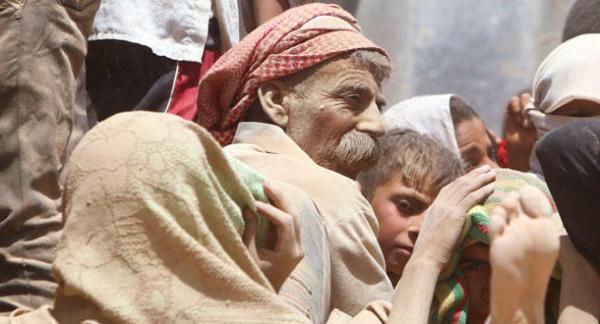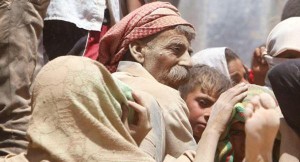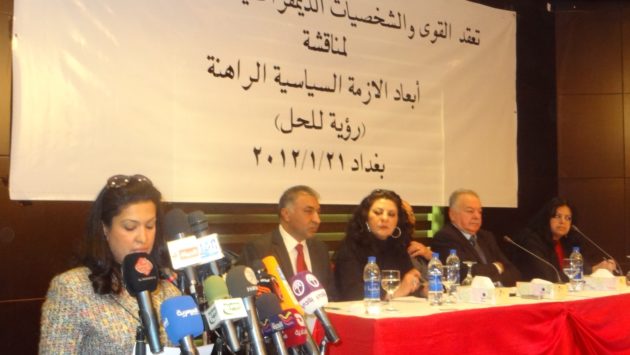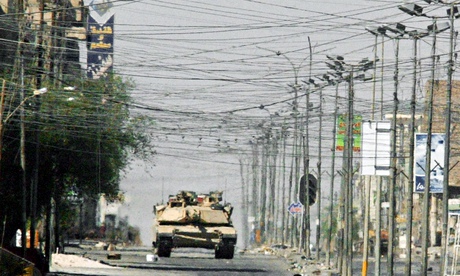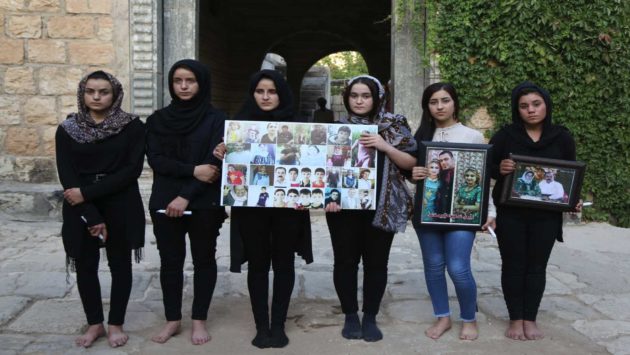Protection of Civilians in the Non International Armed Conflict in Iraq
Report by : United Nations Assistance Mission For Iraq (UNAMI) – Human Rights Office 5 June – 5 July 2014
Summary
The non-international armed conflict that commenced in Iraq in Anbar governorate in January 2014 and has since spread to other areas of the country since the beginning of June has inflicted untold hardship and suffering on the civilian population with large-scale killings, injuries, and destruction and damage of livelihoods and property. The minimum number of civilians killed in the first six months of 2014 is 5,576, with at least 11,665 wounded. Since the beginning of June 2014, a minimum of 1,531 civilians have been killed and 1,763 have been wounded, and some 1.2 million s people have been internally displaced as a result of the violence – including over 600,000 since the beginning of June alone.
As of 5 July, the cities of Mosul, Tikrit, Tal Afar, Beiji, Quayyara, Sinjar, Suleiman Bek, Rashad, Hawijah, Riyadh, Fallujah, and Saqlawiyah, remained under full or partial control of armed opposition groups, with fighting ranging across parts of Anbar, Ninewa, Salah id-Din, Kirkuk and Diyala governorates.
Ensuring that protection and the basic humanitarian needs of civilians who remain in areas affected by conflict or have been displaced because of it, is of critical importance. There are serious concerns for the protection and welfare of members of vulnerable groups, particularly women, female-headed households, children, people with disabilities, the elderly, and members of diverse minority groups (ethnic, cultural or religious).
International law requires that both the State and armed groups take all measures to minimise the impact of violence on civilians, respect the principles of distinction and proportionality when carrying out armed operations, and take steps to ensure the safety and protection of civilians by enabling them to leave areas affected by violence in safety and dignity, and to access basic humanitarian assistance at all times. Parties to the conflict must also take steps to ensure the protection and care of the most vulnerable among the civilian population, and are required to prevent violations and abuses from taking place. The Government of Iraq is required to hold alleged perpetrators of serious violations to account, in particular violations amounting to war crimes or crimes against humanity.
While this report endeavours to be as comprehensive as possible, limitations imposed by the deteriorating security situation in Iraq has limited the capacity of UNAMI to undertake direct monitoring and verification activities in many instances. Unverified incidents have not been reported.
Since the escalation of the conflict at the beginning of June, UNAMI has documented a range of violations of IHL and violations and abuses of IHRL that, in some instances, may amount to war crimes and crimes against humanity. In particular, UNAMI has documented systematic and egregious violations perpetrated by the Islamic State of Iraq and the Levant (ISIL) and associated armed groups against civilians, including instances of direct, deliberate targeting of civilians in the conduct of armed operations; disregard of the principles of distinction or proportionality in the context of armed operations; killings and executions of civilians, captured Iraq Security Forces (ISF) personnel, and persons associated with the Government of Iraq; sexual violence and rape against women and girls; kidnappings; targeted assassinations/killings of political, community and religious figures; killings, abductions and other violations of members of ethnic, religious and other minorities; killing and physical violence against children; forced recruitment of children; wanton destruction of civilian property; robbery of civilian property; targeting and destruction of civilian objects and infrastructure (including hospitals and schools); attacks on protected installations (such as attacks on dams); and attacks on places of cultural significance and places of religious worship.
UNAMI has also documented violations committed by the ISF and affiliated forces – including summary executions/extrajudicial killings of prisoners and detainees, which may constitute a war crime and, on occasion, lack of adherence to the principle of distinction and proportionality or failures to take necessary precautions to protect civilians in carrying out military operations.
The United Nations in Iraq has responded to the armed conflict and the resulting humanitarian crisis through coordination mechanisms, including the United Nations Humanitarian Country Team (HCT) made up of representatives of the key United Nations humanitarian agencies, funds and programmes and the United Nations Assistance Mission for Iraq (UNAMI). The United Nations assesses humanitarian needs of civilians affected by the conflict and assists the Government of Iraq, civil society organisations and international partners to implement programmes and activities to ensure that basic humanitarian assistance is provided to those in need, with a particular focus on the protection and care of vulnerable groups.
UNAMI and UNCT have been coordinating monitoring, analysis, and reporting activities on the humanitarian situation in Iraq as it develops. The Human Rights Office of UNAMI has been monitoring and reporting on the human rights situation within the country. Furthermore, the United Nations Secretary General, the United Nations High Commissioner for Human Rights, the Special Representative of the Secretary-General for Iraq and the senior United Nations officials, have called for the respect for principles of IHL and IHRL by all parties to the conflict, and for the protection of civilians; the facilitation and the provision of humanitarian assistance; and the promotion of peaceful mechanisms and political processes for resolving the crisis and bringing the violence to an end.
Download the report UNAMI_OHCHR_POC Report_FINAL_18July2014A

